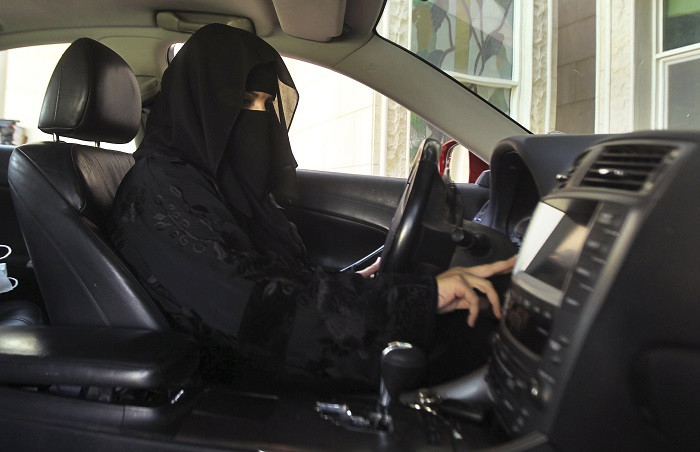Saudi Arabia: Religious police chief risks death for questioning ban on women driving

The chief of the Commission for the Promotion of Virtue and Prevention of Vice (Haia) in Saudi Arabia's Makkah Province has received death threats for encouraging the relaxation of some bans applied to Saudi women.
Ahmad Bin Qassim Al-Ghamdi caused anger after he issued an edict saying women should be allowed to drive cars and show their face in public.
What is the Haia?
The Haia is Saudi Arabia's agency that employs the "religious police", or Mutaween, who are in charge of making sure that sharia law is obeyed in the kingdom.
The Mutaween have the power to arrest people who engage in homosexual acts, prostitution, fornication, and try to convert others to religions other than Islam.
The religious police are often criticised, with many claiming they abuse their power and that extremists have infiltrated the Haia.
In one instance in 2002, 15 girls died after the Mutaween refused to let them out of a burning public school in Mecca, claiming they were not properly covered.
Mutaween can be recognised as they wear traditional middle eastern headscarf known as keffiyeh.
The Saudi Gazzette reoported that al-Ghamdi had already sparked outrage after he appeared on TV with his unveiled wife and for his "controversial fatwas [religious edicts]".
"People have also accused me of having a hidden agenda behind my fatwas or that I said the right things at the wrong time," he said.
Speaking about the dress code imposed on women when they are in public, he said: "Hijab [a garment that covers the head and chest ] is not about wearing a piece of fabric on your face. It is about modesty.
"When my wife appeared on TV without a face veil, that did not make her any less chaste. I was disowned by other Sheikhs in my area and that does not harm me. Their decision represents no one but themselves. If my tribe disowned me then I don't want to belong to a tribe that is ignorant of its religion," said Al-Ghamdi.
"I revealed many hypocrites and spoke of the true light of Islam. However, some members of our society want to constrict religion to growing beards and wearing sandals," he said.
Al-Ghamdi sparked controversy after he said he was favourable to gender mixing and to listening to music in public, both banned in the kingdom.
© Copyright IBTimes 2025. All rights reserved.






















